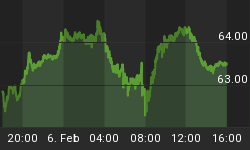Introduction:
A new book is out, or at least I've just discovered it. It's called “Crashmaker, A Federal Affaire”. Victor Sperandeo, a Wall Street author, and Alvaro Almeida, an attorney write it. According to the short summary at Crashmaker's website, it is a fictional story about a Wall Street trader who plans to crash the Federal Reserve, profit from it, and set out to roll the profit into a new constitutional order - absent the Fed. Brilliant. I like it, though I'm a little apprehensive because of the few inaccuracies I've spotted so far. Consider in the following description of the story whether you see one:
With (the) creation of the Federal Reserve System in 1913, and destruction of the constitutional monetary system based on silver and gold in the 1930s, Congress surrendered tremendous discretionary power over America's economy to a few men and women in the highest echelons of the nation's central bank.
The constitutional monetary system was based on silver and gold, but by the 1930's it was only gold. Silver had already been outlawed by the Silver Coinage act of 1873 better known as the Crime of 1873. This might sound nitpicky to you, in which case the book would probably be a really good read but for me it sort of wrecks it because it was the eradication of silver coinage, which in my view allowed the creation of the Federal Reserve System in 1913.
Anyhow, I haven't read it yet and I'm not sure whether I will but I stumbled into the following quote from a chapter called A Hidden Agenda where Dominic Ancona, the lead character in the story opposing the Federal Reserve System, is giving a speech to an audience at a University:
“A Hidden Agenda”
“...The Fed's real purpose- its hidden agenda- is to facilitate governmentspending through inflation. To avoid imposing politically intolerable levelsof taxation to pay for the spending that returns them to office election afterelection, politicians rely on the Fed to confiscate wealth from the public throughinflation. Inflation's a hidden tax, and lessens the cost of borrowing by enablingthe government to pay its debts in depreciated currency.”After a sip of water, Dominic continued. “For the system to work, however, implementation of its inflationary policy must be unpredictable- and therefore surreptitious and deceitful. Thus, the Fed's an economic stealth bomber.” The audience laughed. “That may appear to be an extreme metaphor,” Dominic responded to the reaction. “Nevertheless, it's accepted wisdom on Wall Street. Why? Let me introduce two key terms: forecasting and discounting.”
“If the market can forecast what the Federal Reserve intends to do, then it can discount- in layman's terms, preempt, frustrate, or even nullify- the Fed's actions. For example, if the market knows the Fed will increase the supply of money a month from today, producers will start today to raise prices of goods and services in anticipation of the increases in their suppliers' prices, and in consumers' incomes, that they expect will follow growth of the money supply. The Fed, on the other hand, would like any price increases to come well after the spurt in the supply of money, because the ability of its inflationary policy to stimulate the economy depends on a lag. So, when the market forecasts and discounts the Fed's actions, they lose their effectiveness. Conversely, when the Fed deceives the market, the more likely the Fed will achieve its desires. This explains why the Fed asserts political independence from Congress and the Treasury, why it refuses to operate according to fixed rules, and why it makes its decisions in secret- because the Federal Reserve's ability to deceive depends on its power; and its power depends on its ability to deceive.”
Enough said on the question of manipulation then. There must be enough truth in the above statement to expose any central bank's motivation or incentive to do what it does.
It's intriguing to me too, being an analyst of sorts, that it is so hard to get away from speculating on what "they" are going to do tomorrow or the next day, or even just trying to understand what they did last week and why.
Today we're going to try and figure out why the darn stock and bond markets don't travel together, anymore, whether they ever did, and what it all might mean. Then we'll apply what we've learned to today!
| 1930 - 2001 | |
 DJ Bond Average Prices (20 Bonds) |  Barron's - Best Grade Bond Yield |
| Source: SHARELYNX.net | |
INSIDE: Today we're going to try and figure out why the darn stock and bond markets don't travel together, anymore, whether they ever did, and what it all might mean. When they travel together, Wall Street refers to the process as coupled, when they travel apart, it is decoupled... since 1998, stocks and bonds have decoupled, and over the past two weeks...GoldenBar.com















